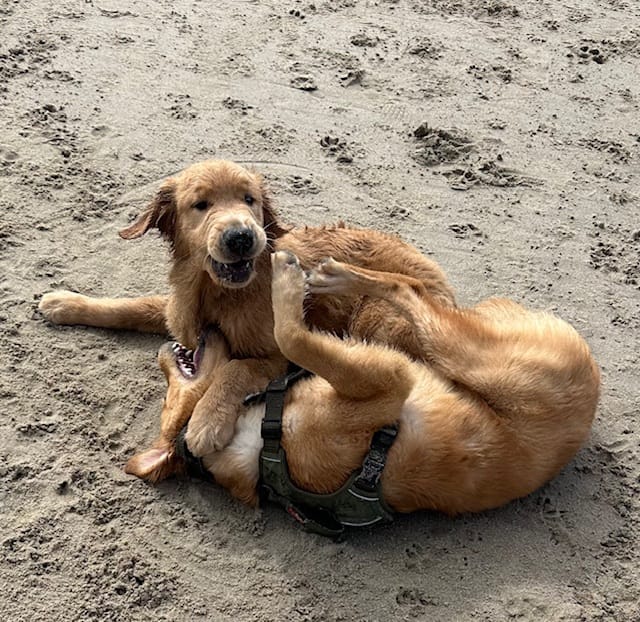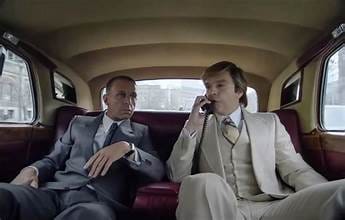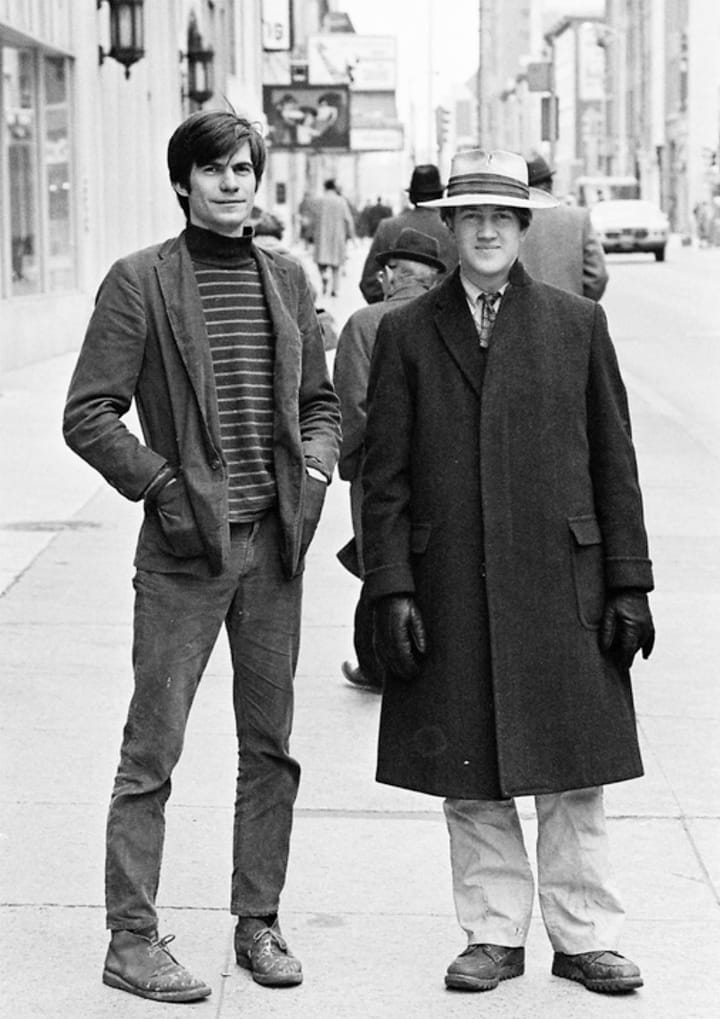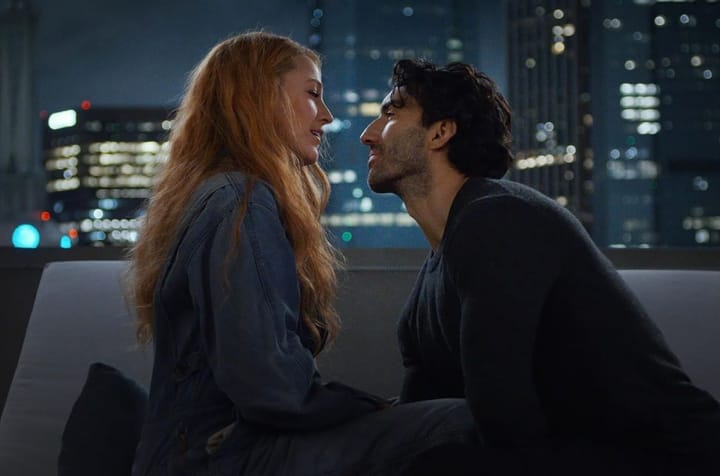Saoirse Ronan, in "The Outrun", "Rides It Like A Soldier"

Who here can stomach a medium-grade blast of positivity?
I ask because the current entertainment climate, as depicted by blogger Ted Gioia in a post this week, is trending away from hopefulness and joy.
“The pop culture audience today,” he notes, “craves darkness and dysfunction.”
The mission of today’s newsletter is to celebrate something more vivifying. Arriving as the next big step on Saorise Ronan’s path towards one of the great acting careers is the indie release “The Outrun,” in theaters this weekend. (With whatever streaming deal it may make yet to be announced.)
Critical response to the film, as adapted from Englishwoman Amy Liptrot’s memoir of the same title, has ranged from. near-ecstatic ("an inspired surprise") to some reviewers finding it virtuous but “slow”. I didn’t find it slow—sooner call it resolute, as it offers both entertainment and life lessons at its own determined if variable pace, coming in a series of cleverly crafted reveals. (While some reviewers, perhaps not cognizant of the source material, instead found it choppy.)
Some sequences are thunderous, close to blowing out the theater’s speakers, as our heroine (named Rona to give the film some distance from the memoir) fights toward a better life despite the obstacles of booze and party-drug addiction. Just as many telling moments are meditative, and at times silent– perhaps we just hear the tide lapping as Rona studies a whiskered, curious seal yards away from her, returning her inquisitive gaze.
Such inquiry is central to the process of the book that spawned it, and most certainly to the filmmaking work as done by the author, who co-wrote the screenplay with director Nora Langscheidt. (Living in London even as the filmmakers shot in and around the very Orkney Islands settlements and homes where she grew up, Liptrot was sent each day’s rushes to supplement her collaborative visits to the set.)
German director-scenarist Flingscheidt, trained in documentaries, renamed the lead character after a nearby island to help lean a bit away from the 2016 memoir. The shooting took place post-Covid, even as Liptrot stayed on course in her sobriety, in an arduous progression from a tumultuous alcoholism towards her new sober life.
Liptrot is 43 now, a figure of some renown in the United Kingdom, and still deploying the same writing talent that in large part drove her self-rescue (along with a stern local-government-funded rehab). Perhaps the most striking thing about her work and attitude is how, for all her scarring personal history, Liptrot rejects anything approaching self-pity.
In its place is plenty of dark humor. There’s a passage early in the memoir that speaks of a moment in the group meetings staged for Liptrot and her fellow rehabbers:
Pressed to find `a feeling’ to express about some drug-induced criminal activity, one of my ‘peers’ (as we called each other) reached deep within himself and came up with ‘ride it like a soldier’. While this was not strictly a `feeling’ it made us laugh…
Hollywood has managed to drum almost all the intellect out of the term “intellectual property”, and while “The Outrun” as a commercial entry has gone from memoir to film to stage play, amassing high marks at all stages, it might better be termed an “intelligent property,” and one which steadily fights off the cliches that might have tagged along. The journey is shown coming out of a difficult childhood that left lingering family issues, then a dissolute period of sex and drugs and rock and roll, then a return to the Orkneys for Rona’s immersion in nature and memory, and ultimately a fulfilling arrival into a mingling of creativity and communion with nature.
Given the rigor of Liptrot’s approach, the story was not as irresistible a piece of Oscar bait as such a summary might hint.
The prescription for casting had to meet the central roleactor's near-constant presence onscreen, plus added reams of precise voiceover delving into the science of boozing, the trials of mental disorders (the excellent Stephen Dillane plays Rona’s troubled dad), the goopy details of animal husbandry, and certain arcane aspects of sea, surf, sky and heavenly bodies.
It’s a role that feasibly could have been be handed to say, Nicole Kidman, Amy Adams, or Jennifer Lawrence (like Ronan, a precocious multiple- Oscar-nabber.) But Ronan proved ideal. Born in New York in 1994 to an émigré couple who returned with her to their Irish roots when she was three, she began young and advanced through the ranks to get her first Oscar nom as “Atonement”’s Briony Tallis in an adaptation of Ian McEwan’s at times grim novel.
Though some have remarked that the actress has ducked villainous parts, what Briony does is paid for in anguish all around. And her at-first-schoolgirlish character in the 2015 film adaptation of Colm Toibin’s “Brooklyn” becomes a kind of apple-cheeked succubus, winning a naïve Italian swain and then venturing astray of her marriage in a return visit to Ireland.
Perhaps such work is what brought A.O. Scott to write of her gift, when the New York Times placed her tenth among great actors of this century, “It can be terrifying to witness, but genius often is.” Ronan brings to "Atonement" both seductiveness and a betrayal that she makes painfully believable. (The assaying stare s she gives a meddling local gossip threatens to leave smoking holes in the screen.)
London’s theater world wondered if she was too young to play Lady Macbeth at 27, but the Express found that “Ronan brings a refreshing contemporary reading to the role and is electrifyingly believable. Although it is hard to take your eyes off her, she is also a true company player, shining but never outshining, never pulling focus in this triumphant ensemble piece.”
She’ll soon also be seen in Steve McQueen’s “”Blitz” (November 1, streaming on Apple TV November 22), as the mother to a son under threat from German bombings in wartime London. For now, "The Outrun" is stuffed with talent, even as most scenes evolve around Rona. Stephen Dillane as her dad and Pappa Essiedu as the sometime boyfriend have both played Hamlet on the London stage, and Saskia Reeves, as her mom, is familiar as a senior spy tangled up with Gary Oldman’s Jackson Lamb in “Slow Horses”. (Also in that series is Jack Lowden as whom Ronan married in his native Scotland in July, as River. It was he who picked the Liptrot memoir off their shelf duing Covid, urged her to do it, and co-produces “The Outrun”.
“I’ve always loved being on my own onscreen,” she has said. In comradely press sessions that included Ronan, the author and Flingscheidt describe how they co-wrote the screenplay while steadily leaving room for the actress to pitch in heavily with her own dialog.
An actual cinema visit, by the way, is well rewarded by this film. The austerely beautiful land and escape of the remote island locations enhance our understanding of how such rough beauty is filling the empty spaces in her sobriety. To hear in depth how Flingscheidt sorted through the three themes of the story—bumptious London intoxication, the healing island therapies of arctic-cold swims and dramatically gooey sheep birthing, and the deep but accessible nature insights that often come in voice-overs, is to admire the German engineering of it all.
But first and last, the achievement is mostly Liptrot’s. After her memoir became the Guardian Non-Fiction Book of the Year and overall Book of the Year in the New Statesman (“an Orcadian warrior with the breeze in her blood and poetry in her fingers"), then went on to film and stage productions, she absconded to Berlin, and wrote the warmly received follow-on memoir, “Island”. (That book delved into urban wildlife a tough break-up and much ado about the moon). Next, as a newly installed, young-ish but still grand dame of British letters, she settled down with a partner and plans to write next about…seaweed.
“I see myself as a writer,” Liptrot has said, “Rather than somebody who has a sensational life.” It’s a fair assessment. So commanding is the sober author’s command of her life’s details, so touched with a kind of gritty poetry are her observations, it may be best to give her the floor. E.g.:
She starts with the basics, a workmanlike depiction of the sprawling field that lay near her seaside childhood home, that gave the book its name: “The outrun was a stretch of coastland where the grass is always short, pummeled by wind and sea spray the year round”.
On her not-so-striving, hard-partying late-20’s scene in London’s Hackney district: “We all thought we’d be running things in five years.”
On the inner despair she tried to seal off with binge drinking and near-accidental sex, and the willful self-abuse that alienated her boyfriend: “A photograph caught me unawares. He said I often looked like that: unfathomably, unquenchably sad…”
Until: “The eye contact dwindled. I squeezed the last love from him.”
Increasing spates of despair and pill-popping subjected her to shunning by friends: “It wasn’t a good look to ruin my friend’s poetry reading with coked-up, incomprehensible heckles, or to be lying on the floor of a pub toilet, my friends too weary to do anything to move me."
Then one drunken night came an offer of a ride ending in a near-rape she fought off crying out, “I’m stronger than you.” (She’s six feet tall and builds seawalls out of stone and slate.)
On the dawning realization she needed an honest and earnest if lonely rehab stretch: “I didn’t want to break anyone’s heart with my drinking.”
And yet loneliness dogged her as she worked her Alcoholic Anonymous path, including detox with frequent testing and drab group therapies: “Had all my life been leading up to doing Kundalini yoga with a bunch of pissheads and junkies in various states of physical disrepair and mental anguish on an institutional carpet?”
She writes of avoiding the familiar sobriety homilies, but recalls a sudden moment of clarity even in her darkest period: “I saw a sober life was not only possible but full of hope, dazzling.”
Her retreat to the single, seaside life on an island populated by just 70 souls was a fresh start: “I’ve washed up on this island again, nine months sober, washed down and scrubbed clean, like a pebble.”
Of the crucial role of her volunteer employment with a local conservation project called The Corncrake Initiative, best not to reveal too much here. Her PhD-level research nearly matched that of the naturalists who employed her to scout for the elusive, small sea birds that each year migrated thousands of miles to Central Africa: “I didn’t know my strongest desire would be to hear the rasping call of the corncrake.”
What the filmmaking trio make of that quest brings on a small but heart-stirring (and anything but corny) triumph at films end.
Ultimately, she fulfills the urge that brought her there: “I’m looking to the surprises of my natural surroundings to stir my imagination.”
When she feels fully back in charge of her impulses and considers social life and relationships, it’s daunting: “I couldn’t imagine how to dance sober...I must be brave. I wonder if I can be cheeky or flirtatious.
“If I can master this, I could be unstoppable.”
“Indeed, I feel like I have opened a door that has always been in my house but I had never noticed.”
And yet, as she looks out to sea or up into the sprawl of stars visible from the dark outpost at the edge of the Atlantic, she’ll go back to her laptop for an insight: “The contrail high above [the island] one dawn is the overnight Lufthansa flight from L.A . to Frankfurt.”
Finally, she attains a power and resolve that sums up the many strengths—of her lived story and her inspiring telling of it—that make the book and film so easy to recommend: “Down here inside myself I feel powerful and determined. The edge is where I’m from. It’s my home. The powers are churning inside me.”
—-A pronunciation guide to Ronan's first name (best of luck): https://www.youtube.com/watch?v=vdkd6wgbzhI





Comments ()